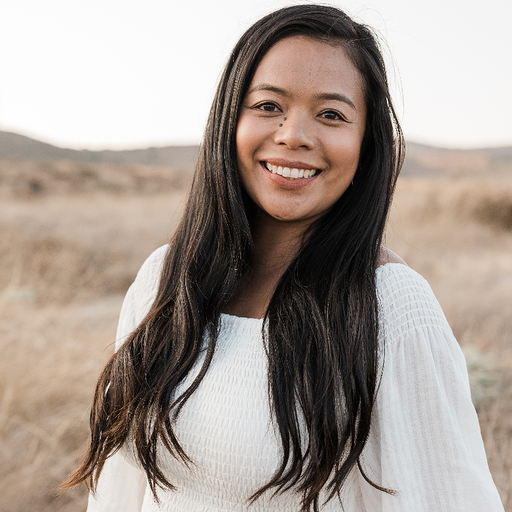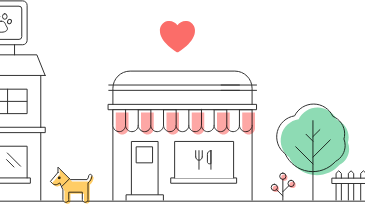Women’s History Month celebrates the contributions of women throughout history while raising awareness on the important issues women face today. This month is a celebration of women’s accomplishments and we want to spotlight the successes of a few women-owned local businesses.
From photography and beauty to plant-based energy bars and healthy pet treats, these three business owners share their inspiring stories, their involvement in their communities, and their tips for other local businesses owners.
Aliah Husain of San Francisco helps women channel their beauty and confidence through photography
Aliah Husain is the founder of Raw Portraiture based in San Francisco, CA
For Aliah Husain, running a photography business was never something she imagined herself doing. In her words, the business “came out of the blue.” She initially followed a traditional career path, attending college, earning a business degree, and eventually landing a role in sales and recruiting. While she had always considered herself a creative, the option of becoming both a professional creative and successful business woman didn’t cross her mind.
But in 2014, Aliah gave birth to her son and her world changed. Trusting her gut feeling to be more authentic to herself, Aliah quit her day job and eventually found a path that would lead her to start Raw Portraiture, a local business with a mission to empower women and help them uncover their inner beauty and confidence.
Tell us your business story.
When I had my son, I was completely obsessed with wellness and clean beauty and I started a blog and Instagram page that was talking about wellness and the products that were non-toxic. It got me thinking. Maybe I’m interested in makeup artistry. So I started doing that and eventually built my makeup portfolio. I probably did 20-25 shoots and what really captured my spirit and soul was seeing these pictures of women and how the camera picked up all of their beauty. They would end up walking away having seen their pictures and would say, “That was so fun and I feel so confident.” I felt so connected with that. It made me realize that I had this opportunity to use this creative side for myself but also make women feel really good about themselves.
What does “community” mean to you and how does supporting other women-owned businesses fit into that?
Community is a group of people who are continuously investing in each other, all the time. That could be time, money, helping each other get business through referrals. We’re all in it to help each other. And when it comes to supporting your community, and even empowering other women, it’s contagious. If you receive empowerment and positive feedback from other women, you’re more likely to go out and give out that same level of energy, positivity, and encouragement to other women and others around you. It’s the same financially. If you put resources into women-owned businesses - or minority-owned and underrepresented businesses - they’ll be able to go out and continue to have a legacy within their communities.
What marketing tips do you have for other local businesses?
First and foremost, have an excellent digital presence. That means getting yourself on as many platforms and having as much traffic going to your business as possible. Nextdoor has been huge for me. It’s been a great marketing tool. With what I do, there’s a lot of draw to it for people in my direct neighborhood and community. A lot of people end up supporting me as a business owner on Nextdoor because I’m local, I’m women-owned, and I’m a woman of color. Look within your own community for sources of exposure because I think there’s a real customer loyalty that comes forward when you’re local.
Amy Renz of Massachusetts is making a meaningful difference for animals in her community, one treat at a time
Amy Renz is the founder and CEO of Goodness Gracious Treats in Marblehead, MA. She’s pictured with her dogs Lula and Grace.
Amy Renz of Marblehead, Massachusetts is an inspiring example of entrepreneurship - and proof that you can start a business at any age. At 40 years old, she founded Goodness Gracious Treats out of a desire to make a difference in the lives of others - whether human or furry. Goodness Gracious Treats are handcrafted, human grade pet treats made daily using fresh ingredients - with 51% of profits donated to local animal charities. Amy founded the business in 2010, and over 10 years later, her business is an example of work that not only brings her fulfillment, but impacts her community in meaningful ways.
Tell us your business story.
Goodness Gracious is as much a company as it is a spirit. We’re located in the small, historic seaside town of Marblehead, MA and came to life in 2010 – when I was 40 years old. Like many women, I found that endless source of strength, courage, commitment, compassion, and love in motherhood. I started Goodness Gracious believing I could empower a company with those same attributes to make a difference. We make treats that pets love and parents love to give. We also give 51% of our profits to animal charities.
Our treats are made from scratch in our licensed and inspected human-grade food facility using only fresh, human-edible whole foods that are delivered daily, and we hand-pack every bag. We don’t use massive machinery, weird food science, suspect ingredients, or fancy-colored puffed up processed food. Instead, our manufacturing methods are more closely related to what cowgirls do – or even the cavemen did. We simply use dehydration to make nutritious, self-stable treats.
How does your business show support for your community (human or furry)?
As mentioned, we donate 51% of our profits to local animal charities. We do this in a number of ways – from our Tuesday’s Child program, to our Run for Rescue 5k, and straight up donations “just because.”
Tuesday’s Child is inspired by the poem “Tuesday’s child is full of grace…” It is a donation of cash and treats given on a Tuesday to a non-profit, no-kill animal shelter or rescue that’s making a difference.
The Run for Rescue 5k is a run or walk for people and their dogs that Goodness Gracious hosts every other year. It has raised over $100,000 for animal charities to date.
In the U.S. between 1–1.5 million adoptable companion animals are euthanized annually because of sheltering problems. When I started Goodness Gracious, the shelter statistics were much sadder. The lives of closer to 3 million adoptable animals were destroyed annually. Rescue groups are doing God’s work and we try to help with the resources. Together, we believe we can enable all fortunate companion animals to help all less fortunate ones, one delicious treat at a time.
What successful business tactics have you implemented that could help other local businesses?
Giving our people room to run is intrinsic to Goodness Gracious. Our team members are really good at what they do because they enjoy what they do, and they enjoy it because they make it their own. A great example of this is Sarah. Her title is sales account executive but her contributions are way beyond that. She is an amazing photographer. Many of the images you will find on our website or in social media were done by her. Giving people the power and space to express themselves is certainly one of the reasons for our success.
Berkeley, CA entrepreneur, Julie Gordon White, empowers women going through menopause with plant-based energy bars
Julie Gordon White is the founder of Bossa Bars and is based in Berkeley, CA.
When Julie Gordon White noticed she was approaching menopause, she knew she wasn’t going to sit on the sidelines and let it run her life. Knowing the less than glamorous symptoms women experience, Julie took control. In her kitchen, she crafted a recipe for a plant-based energy bar that would later become Bossa Bars. The bars are intended to help women at all stages of menopause feel healthier and more empowered. To compliment the bars, Julie also created an online community for women to come together, get answers, and rest assured that they aren’t alone.
Tell us your business story.
Like most entrepreneurs, I had a problem that needed solving. I found myself in my late 40s, sitting at my desk staring at the wall trying to remember what I was just thinking and constantly finding mistakes in my emails. After the standard but ill-advised searches on Google, I self-diagnosed that I was likely in perimenopause. Knowing that menopause can last for 4-10 years is a lot to accept, so I decided I had to take control.
After researching the key nutrients that women with decreasing estrogen and energy can benefit from, I started hacking together a recipe in my kitchen to address my intense sugar cravings. Having a reasonably sized, healthy and satisfying treat resulted in me losing 10 pounds, less brain fog, less fatigue, and overall feeling 10x better. The hardest part was actually keeping my husband from eating all the samples.
Those results motivated me to share what I learned and experienced, which led to the idea of building not only a product, but a community for and around the women who are looking for the same answers. So, I turned my recipe over to the experts at our manufacturing partner to adapt it for production at scale and Bossa Bars was born.
How does your business support other women?
Bossa Bars was created specifically for the 31 million U.S. women between the ages of 45–64 who find menopause to be generally miserable.
When I searched for images with the term menopause, the majority of stock photos were of women with their heads down in their hands, on their desks, or generally looking exhausted and miserable. I want to change that. I am very focused on the movement of shifting attitudes, acceptance, and solutions for menopause. In order to do that we believe in having a support community for our customers. That is a big difference from other bars or menopause branded products. Our team is there for our customers with support, advice, and a listening ear - even before they buy their first box of bars. We have live Q&A events with our staff of health and nutrition experts and have created online groups and resources.
The Bossa Bars team is mainly lady bosses who represent every stage of menopause from approaching, in the thick of it, to post-menopausal. We are all passionate about providing support in the form of food and community. We like to describe ourselves as a group of friends who are having fun and trying not to eat all of the inventory.
What tips do you have for local businesses who want to get the word out about their products or services?
One tip is to establish an online storefront. I love Shopify because it allows us to connect directly with our customers – something we wouldn’t be able to do if we were selling through retail stores. The other tip is to ramp up your digital presence on social media, including Nextdoor. This is key to spreading the word about your offerings.
While these three businesses differ in their products and services, a common thread that weaves through each of their stories is the importance of community. If you’re looking for ways to get more involved and engage with your local community, Nextdoor is a direct line to your neighbors. Claim your free Business Page and start building those connections with the customers closest to you.





-1%20(1).jpg?width=200&name=iStock-1140598547%20(1)-1%20(1).jpg)
.jpg?width=200&name=NextdoorOakland-134-min%20(1).jpg)
.jpg?width=200&name=iStock-1160229044-min%20(1).jpg)
.jpg?width=200&name=Banner%20REBRAND%202%20(1).jpg)